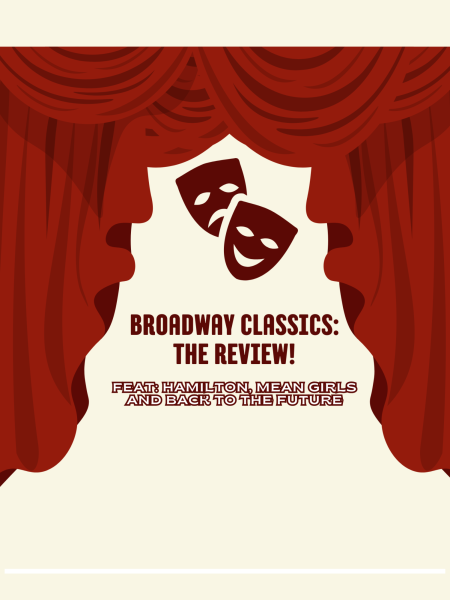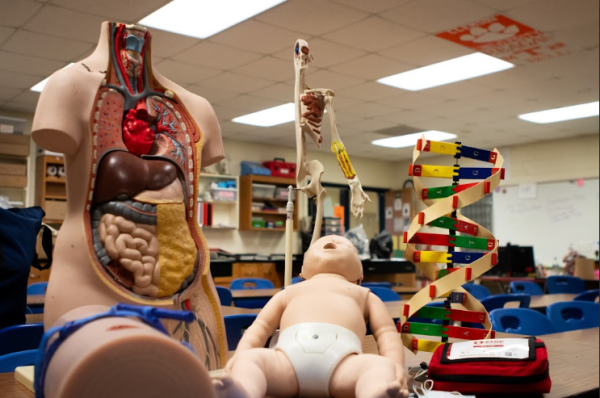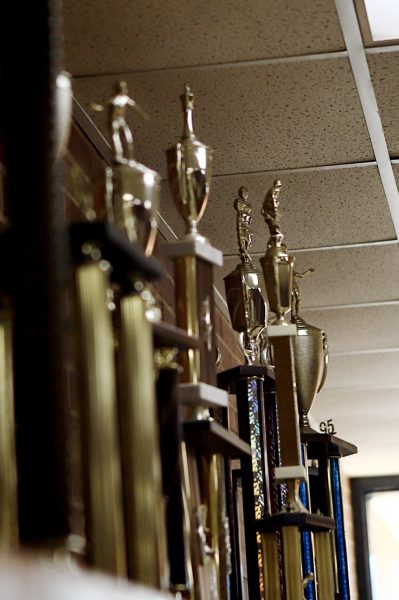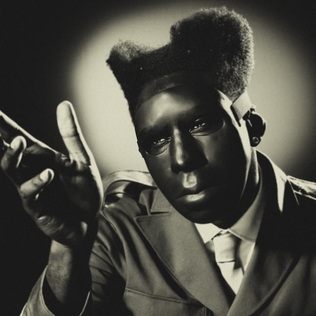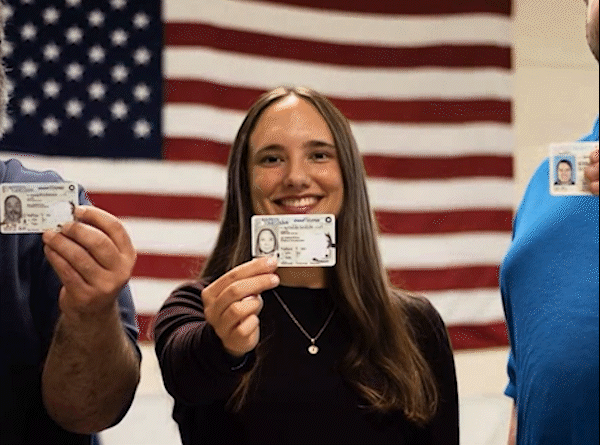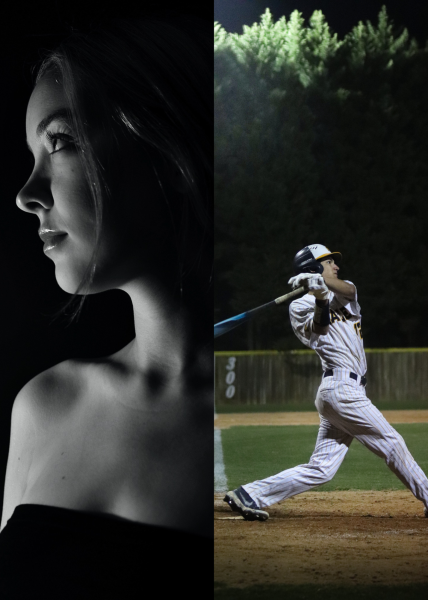Bohemian Rhapsody: song of the ages, movie for today
There are few bands with a discography as iconic as Queen. Even if you are unfamiliar with the name, you are likely to know their songs: “We Will Rock You,” “Another One Bites the Dust,” and the inspiration of the new biopic, “Bohemian Rhapsody.”
Bohemian Rhapsody premiered Nov. 2. It covers the legendary life of star and lead singer Freddie Mercury (Rami Malek) of the rock band Queen. It was a bravely inspirational story with a quality cast and a satisfying message about love and family. However, this does not dismiss its flaws.
There are many aspects of this film that make it feel like the writers and director procrastinated their part of the project until the last minute.
One of the messy aspects of Bohemian Rhapsody is the pacing. At first it’s too fast, then it’s perfect, then it’s too slow, etc. There never seems to be consistent timing. For example, in the first twenty or so minutes, the movie cycles through much of Mercury’s major life events, such as his first time meeting his lifelong best friend Mary Austin (Lucy Boynton), his first meeting with his bandmates Brian May (Gwilym Lee) and Roger Taylor (Ben Hardy), and their first concert. Then, at minute twenty-one, the film arrives at “One Year Later.” Personally, I would have enjoyed extending one of these events into its own time slot, preferably the developing relationship between Mercury, May and Taylor.
As Bohemian Rhapsody progresses, their relationship grows substantially from strangers to friends to bandmates to family. Growing along with their friendship is their music. As someone who only knew Queen for their music, not their stories, I was wonderfully excited by the studio recording montage scene depicting all the different, creative ways they made music: using a bow on an electric guitar, swinging a stereo around to capture moving sound, spreading coins across the drums to make unique dissonance, and so much more. The first hit song they record is “Killer Queen.” And, I’ve got to say, up to this point, I was merely watching the movie but when I heard the crescendo from the lyric “Killer” to “Quee-een!” I became completely emerged out of sheer nostalgia; my heart started racing, my eyes were tearing up and I practically started singing in the theater. This happened with every song that graced this film. If it weren’t for Queen’s killer hits, this movie would have been a nonstarter.
Secondary to the soundtrack, another hit that came from this movie was Rami Malek’s exceptional performance. Malek’s performance as Freddie Mercury is one of the most stunning parts of the film. There’s an art to playing someone who actually existed in real life. You need to capture their voice, accent, idiolect, their stance, movement, quirks and ticks. I am by no means an expert in linguistics or a movement coach, therefore I can’t judge Malek’s degree of gravitas. However, to the untrained eye, he nailed it. He looks, feels, sounds and moves like Freddie Mercury, which is a difficult thing to do, especially with Mercury’s unique style of performing. Along with acting as Mercury, Malek sang as Mercury. While he may not have the range of Mercury (although, who does?), the vocals were his — plus a few more. In fact, in an interview with Metro, he revealed the vocals used in the film are a mesh of his, Canadian singer Marc Martel’s and recordings of Mercury’s voice.
But, great acting can only get a movie so far. While the cast and music will forever be iconic, the way Bohemian Rhapsody mishandles Mercury’s sexuality will not. Historically, most know him as a gay icon; however, in truth, he was queer/bisexual, meaning he was attracted to two or more genders, not just men or just women. Bohemian Rhapsody had the chance to correct public knowledge, yet they swept it aside like how Austin swept aside his coming out by saying, “No, Freddie, you’re gay.” It simply isn’t a fair way to tell his story. Bohemian Rhapsody also demonizes diverging sexuality through the way that they paint other queer characters, namely Mercury’s manager Paul Prenter (Allen Leech). Prenter is shown as the villain of the story, manipulating Mercury to fire people who got in his way, isolating him from people he considers family, using his money to throw elaborate private parties and blackmailing him with photos of his sexual escapades. According to the movie, Prenter is nothing more than a selfish, hedonistic predator that leeches off of Mercury’s fame and wealth- not a great way to portray the only other non-straight main character.
However, this does not erase the love learned through (the one other LGBT+ character with lines) Mercury’s husband Jim Hutton (Aaron McCusker). Hutton gets about 15 total minutes in the movie but his impact is forever. In Bohemian Rhapsody, they met when Hutton was a servant at one of Mercury’s extravagant parties. They sit and talk and have a drink. It ends with Hutton leaving, telling Mercury to find him when he’s ready to love himself, too. It was a criticism of how Mercury was leading a fast-paced, drug-laced, drunken life but it was also a whispering goal for him and us, the audience. Possibly an hour later, Hutton returns to the screen after Mercury finally absolves himself from iniquity by firing Prenter and apologizing to the other members of Queen and Austin for abandoning them.
Hutton, as a character, is used as a reward for rightdoing. He symbolizes what can go right if pure love is used instead of manipulation — a foil to the treachery of Prenter. Because of pure love, Mercury finally realizes the value of his friends and family, especially when his cold, distant, formerly disapproving father finally accepts his sexuality and career.
Overall, Bohemian Rhapsody is a work of art only by means of the cast and music. I enjoyed the movie when I watched it but with further analysis, the flaws show their cracks and the stars shine brighter.
Your donation will support the student journalists of East Mecklenburg High School. Your contribution will allow us to purchase equipment and cover our annual website hosting costs.




